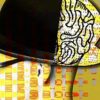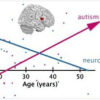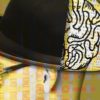Using computer software to analyze the speech patterns of psychopathic killers shows they make readily identifiable subconscious word choices when talking, a finding with intriguing implications for law enforcement and social media networks. Details of the research appear in the journal Legal and Criminological Psychology. “The words of psychopathic murderers match their personalities, which reflect […]










